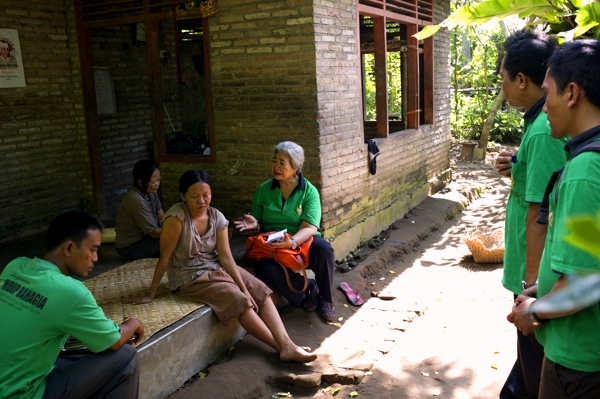All over the world, people with mental illness are subject to poor-quality care and violations of their human rights. Mental health services in Bali and in Indonesia fail to integrate evidence-based treatment and practices, resulting in poor recovery outcomes. The stigma associated with these conditions means that people experience exclusion, rejection and marginalization by society.
“It is critical to improve quality of human rights in order to change this situation”, said Professor Luh Ketut Suryani during her regular visit to her catchment area of community mental health services in Abang, Karangasem. A comprehensive and regular visit can help to identify problems in existing mental health care practices and to plan effective means to ensure that the services are of good quality, respectful of human rights, responsive to the users’ requirements and promote the users’ autonomy, dignity and right to self-determination, add Dr Cokorda Lesmana as the secretary of the institute.
“We need to modify the old system of mental health that only want to use hospital based intervention”, explain Professor Suryani with hope that the government of Indonesia and Bali willing to take the risk for changes. The situation in inpatient facilities is often far worse: people may be locked away for weeks, months and sometimes years in psychiatric hospitals or social care homes, where they experience terrible living conditions and are subject to dehumanizing, degrading treatment, including violence and abuse. “It’s time to make a change”, said Dr Lesmana as he hopes that the lives of people with mental illness in Bali will have a better quality when the integrated and community-based intervention put on works.



